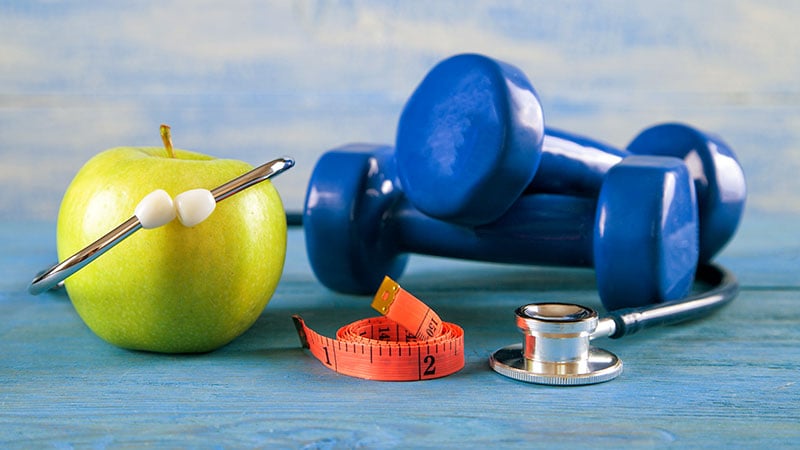Should Adults Get A Measles Booster? In Some Cases, Yes
As of June 20, 2025, there have been 25 measles outbreaks reported this year in the United States, spanning 36 states, according to the Centers for Disease Control and Prevention (CDC). Of the 1,214 people confirmed to have measles, 95% were unvaccinated or unsure of their vaccination status. Most Americans receive their two doses of the MMR vaccine by the time they're 7 years old. But those sobering numbers have people wondering: Should adults get a measles booster? It's a simple question, with a slightly more complicated answer (but we broke it down with public health experts — don't sweat it).
For starters, it's essential to note that while the CDC does report confirmed cases of measles, there are likely far more people contracting it who are not represented in the data. A "confirmed case" means the person sought health care and took a blood test to confirm the presence of measles, says Dr. Lori Handy, associate director of the Vaccine Education Center at Children's Hospital of Philadelphia. But not everyone does that.
"The CDC number is an underestimation of our current outbreak in the United States. Many public health officials estimate we're more around 3,000 or 4,000 cases," she explains. "There are many individuals who are getting a clinical diagnosis, meaning they're not getting a blood test, but they have the symptoms compatible with measles, or perhaps they are the family member of somebody who has measles, so it's obvious that they have measles and they're not getting tested."
No, there is no specific, standalone booster shot for measles. In the U.S., the measles vaccine is bundled with the MMR vaccine, which immunizes the recipient against measles, mumps, and rubella all in one shot. So, that is what we’re really talking about here.
The answer depends on a few things: mainly, your birthday, and secondly, whether you have vaccination records showing you have received your MMR shot before.
"If an adult is not sure if they're up-to-date on their vaccines or if they're an older adult who might've gotten their vaccine before 1969, that was an inactivated vaccine. That is not considered immunogenic at this point in time," Dr. Tina Tan, a vaccine researcher, professor of pediatrics at Northwestern's Feinberg School of Medicine, and president of The Infectious Diseases Society of America. "So if an adult does not know whether or not they received a live attenuated vaccine, with all the stuff going on now, they really should talk to their provider about getting another dose."
Adults born before 1957 are generally considered immune "because there was no vaccine at that time, and they had natural infection and they're protected for life," Handy says. She narrows Tan's window to adults born between 1963 and 1967, a range that Harvard Medical School seconds.
"The vaccine provided in that time window is not as effective as the vaccine used from 1968 on. And so people who know they were vaccinated in that window should get a dose of the current MMR vaccine, and that will give them more sufficient protection."
To be safe, it sounds like a worthwhile conversation to have with your own doctor. Tan says it's important for any adult, anywhere, to be vaccinated against measles, not just those near active measles outbreaks. Measles is "prevalent everywhere around the world," she says, and she and Handy agree that anyone traveling internationally should definitely ensure their MMR vaccine is current.
Those who are immunocompromised or pregnant should not receive a new MMR vaccine, Tan says — these folks are always discouraged from receiving live attenuated vaccines. Protecting those who cannot be vaccinated is part of why herd immunity matters so much to health experts.
Stick to your doctor’s advice about measles prevention and treatment, and avoid taking any advice you may be seeing online, Handy says. As Scary Mommy previously reported, Health and Human Services Secretary Robert Kennedy wrote an OpEd for Fox News declaring that “studies have found that vitamin A can dramatically reduce measles mortality.” This led to some parents in Texas giving their unvaccinated children toxic levels of vitamin A, requiring hospitalization to treat them for liver damage, according to The New York Times.
“There are a lot of suggestions in online media right now around things that may help you recover from measles or make it less severe — things like vitamin A or cod liver oil. To be clear, these aren’t preventative, and they’re not shown to have a benefit for people who live in developed nations like the United States,” Handy says. “The only thing that can really help people not get sick from measles is measles vaccination. A lot of the other measures being reported right now may put people at risk of getting infected and having a severe outcome unnecessarily.”
Both experts emphasized how crucial it is to be vaccinated against measles because infection without any immunity can lead to serious illness, and even death, in people of any age. “This vaccine is very safe and very effective against measles, mumps, and rubella. And it is the best tool that we have to protect individuals against measles and prevent measles spread and transmission,” Tan says.











